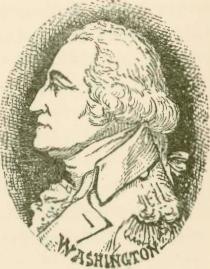CHOOSING THE LEADERS. 63
of civilism. Yet we represent much more ; a greater number of functions. In the matter of economy as well as of clearness in working, the advantages are greatly in favor of the new order. The new is both order and harmony; the old was confusion and uncertainty.
ELECTIVE OFFICERS. The act of voting is the
formal expression of a choice in regard to officers, laws, or social action. As this choice or preference
naturally exists in all adult persons, therefore all have a natural right to vote. This right cannot be created or conferred by men. But we may state the conditions and methods for its expression. These conditions may vary with different phases of social evolution. We are here stating the methods after society becomes definitely or permanently organized.
All regular officers are elected, or impeached and deposed, by a direct and free vote of those they are to officially represent. But in case of vacancies, the centers, or the remaining officers, may appoint temporary officers until elections can be held.
TILE AGE FOR VOTING 1S fixed at the twentieth
year, except in the minor or Pearl and Culture Bands, where the children and youth vote at the seventh and thirteenth year of age, respectively. In these classes and in the schools, the young learn how to
vote before they have attained adult life and have become fitted for its responsibilities.
MANNER OF VOTING. The voting members of
each Primary Band gather at their own central mansion at nine o'clock in the morning of election day. The tellers, that is, two assistants of the elector, pass ballots containing the names of all the candidates, to each member. The members mark with a red pencil against the candidates of their own choice; the tellers then collect the folded ballots, the curator and elector count them and announce the result. This is set down by the recorder and reported to the central government. It thus needs only forty-five minutes to elect the national officers and the others who may be elected at the same time.
In the lesser groups the leaders may be elected by the members of each group.
A CANDIDATE should have served well in some lower office and be well-known to the public. This would save all need for the noise, expense and claptrap of political campaigns. A scientific examination should test the candidates' knowledge as well as the possession of those special talents required in the proposed office. The best persons must be secured for office by making the standard of qualification as high as possible in each age. The engineer must be a master of engineering, both civil and motor; the purveyor must thoroughly understand agriculture. And so of the rest.
If an officer does not behave well, does not fill the office in a satisfactory manner, then the people can vote him out of office just as they voted him in. They have the power of recall or impeachment in
f
